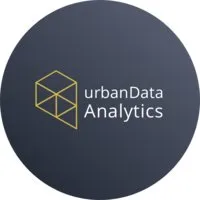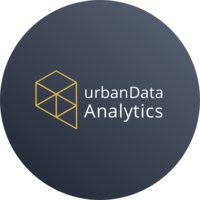GeoChicas is a community of mainly Spanish-speaking women from Latin America and Spain, linked to OpenStreetMap (OSM) and related to the geo world and geo technologies, with the main goal of closing the gender gap in the different communities in which they participate through the development and execution of collaborative projects and initiatives among women.
It is an initiative that arose around the annual State of the Map Conference, which is the OpenStreetMap Latin America community gathering in Sao Paulo, Brazil, in November 2016, with the objective of closing the gender gap in the OpenStreetMap community, where it is estimated that women represent 3%[1] of the people who collaborate globally. Geochicas currently has more than 190 participants from 22 different countries; it has presented their work at more than 20 events, conferences and panels, in more than 10 countries, and has led 10 projects in its two years of work.
Goals
As a community the objective is to work and to improve the following aspects:
- The role of women in the decision-making spaces of the community.
- The participation of women in community activities.
- The representation of the interests of women in the community and on the map itself.
To achieve this, different actions are being carried out by Geochicas, from conducting training activities within the group, and the participation in conferences and congresses, to the development of projects with a deep impact on the community and led by women.
Projects
Through two years of continuous work, Geochicas have led different projects in several Latin American countries and Spain. During 2016 and 2017 different mappings were carried out that covered topics from feminicides and oncology clinics in Nicaragua, such as awareness campaigns such as #WomenMappingTheWorld, and the International Survey on Gender Representation in OpenStreetMap, and the mapping of informal shelters after the earthquake in Oaxaca, Mexico thanks to the micro-grants program of the Humanitarian OpenStreetMap Team.
Geochicas has also focused on working to empower women to participate in different events on technology, geography, geomatics, and in this way be able to establish discussion on gender in the different communities of which they are part, while promoting spaces for peer education through the cycles of webinars given by the participants and allied organizations/companies. One of the great accomplishments of Geochicas is the strengthening of networks of alliances between collectives to maximize the work between communities.
#LasCallesDeLasMujeres
It is a project that was born the last March 8th, due to GeoChicas wanting to do something special for that day. This project not only aims to represent the nomenclature of the streets in terms of the gender disparity in their appointments, but also seeks to promote the mobilization of communities, such as Wikipedia, to discuss the roles of women historically and their socio-cultural contributions.
Thus, the group came up with the idea of creating a map to make visible the scarce representation of women in public spaces, specifically on city streets, and in digital spaces. Two things were done:
- Creating a world map where the streets named after a man and the streets named after a woman were painted for some cities. In order to make a comparative analysis, it was computed which % each group represented.
- Linking each of these famous women with their corresponding article in Wikipedia, to also detect how many of them do not even appear.
All this information can be consulted visually from the project website, https://geochicasosm.github.io/lascallesdelasmujeres/
Technical development
For the technical development, the article by @Aruna Sankaranarayanan from Mapbox, was taken as inspiration and starting point.
To generate the final data that is represented on the map, the project uses initial data obtained from OpenStreetMap and some custom developed scripts.
The process to add a city to the map, consists on the following steps:
- Defining the BBOX of the city.
- Using the TileReduce library of Mapbox on the data from the OSM QA TILES service offered by Mapbox, to obtain a GeoJSON that will only contain the streets of the city.
- Extracting a plain-text list with the names of the streets From this GeoJSON.
- Classifying the list by gender (Male/Female). Currently this classification is done using a local database with around 50,000 previously classified names, obtained from public institutions of Spanish-speaking countries.
- Once the classification is done, querying the Wikipedia API to link each woman’s name with its corresponding article if it has one.
Once this point has been reached, a manual review of the obtained results is required to detect and correct possible errors.
To finish, it is necessary to cross the obtained data with the initial GeoJSON that contains all the streets of the city, in order to generate a new GeoJSON that will contain only the streets named after a person, with its corresponding classification by gender and its Wikipedia link. It is in this final step, when the statistical calculations shown on the map are made.
RoadMap
All the code used in the technical process is available in the Geochicas Github repo. The idea is that any interested person can collaborate on it, and even, process the data on their own to incorporate the results on the map.
Given the good reception of the project, next steps involve not only adding more cities, but also improving the data processing and analysis, classifying the women represented (scientists, writers, artists, etc.) and which type of streets they are assigned to.
[1] Budhathoki, Nama, Zorica Nedovic-Budic, Bertram Bruce, An interdisciplinary frame for understanding Volunteered Geographic Information. 2010







 Featured Job: Senior Front-end Developer
Featured Job: Senior Front-end Developer